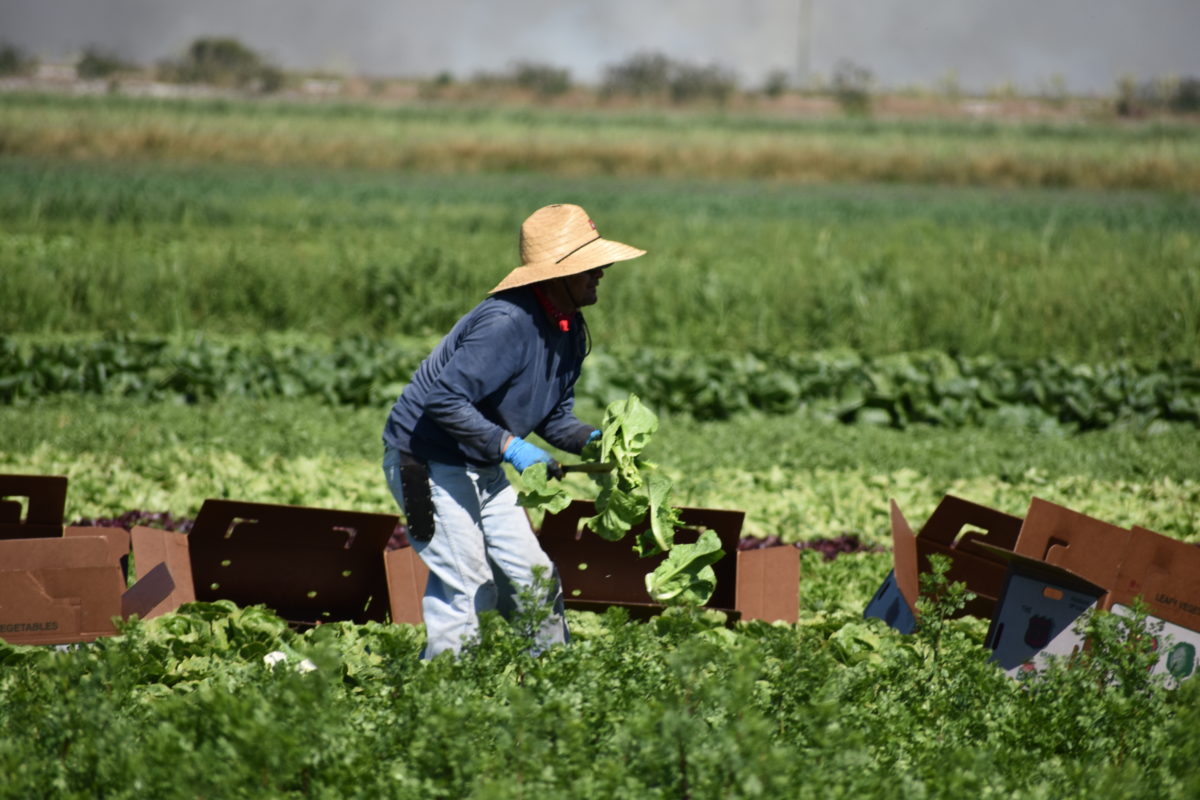By Clint Thompson The hurricanes that wiped out pecan production in two Alabama counties last year are still having an impact on pecan yields this season. Alabama Extension Research Associate Bryan Wilkins confirmed that even though pecan harvests have begun across the state, there is minimal, if any, production in Mobile and Baldwin counties. “There’s not a lot to get. …
Dry Conditions Starting to Persist Across Southeast Region
Drought conditions are starting to persist across the Southeast region. In Florida, abnormally dry conditions are present across the north-to-northeast part of the state; as far west as Hamilton County, stretching to Nassau County. Dry conditions are present along the Atlantic Coast, stretching as far south as Brevard County and Indian River County. In Georgia, abnormally dry conditions are located …
UF Research: Bags on Peaches Help Keep Pests, Diseases Away
Peaches are popular, especially in the Southeast, with annual national production of about 806,000 tons. Growers can help keep pests and diseases from damaging the fruit by placing bags around individual peaches, University of Florida researchers say. David Campbell, a UF/IFAS post-doctoral researcher, led new research, funded by a U.S. Department of Agriculture Organic Research and Extension Initiative grant. UF/IFAS …
Whitefly Management Key for Alabama Producers
Alabama Extension reminds vegetable producers to be on the lookout for silverleaf whiteflies this fall. The pests have become more common during the fall in the Southeast. An increase in activity has led to a reduction in yields for vegetable crops. These include yellow squash, zucchini, tomato, cucumber and snap beans. Costly Impact Whiteflies feed on the leaves but also …
Alabama Extension Agent to Strawberry Producers: Stay on Schedule
By Clint Thompson North Alabama strawberry producers need to stay vigilant in their management strategies this fall and winter. It will help protect against potential stress that might arise, which could lead to vulnerability against new diseases like Neopestalotiopsis Fruit Rot. That’s the message that Eric Schavey, Regional Extension agent in Northeast Alabama “The talk has been that I’ve been …
Doing More with Less: How Pecan Producers Can Still Succeed
By Clint Thompson A point of emphasis over the past couple of years with Southeast pecan production is doing more with less. It starts with scab resistant varieties, says Lenny Wells, University of Georgia Cooperative Extension pecan specialist. “That’s been the theme the last year or two in a lot of our presentations, shifting to more resistant varieties that we …
Price Adjustment: Watermelon Farmers Need Assistance to Remain Sustainable
By Clint Thompson Extremely high input costs makes watermelon production unsustainable for Southeast producers. Carr Hussey, a watermelon farmer in Florida, Georgia and Alabama and chairman of the board of the Florida Watermelon Association (FWA), said there be a must price adjustment for farmers to remain afloat. “Pricing, I think it’s going to change this season, I really do. Farmers …
Alabama Hemp Applications for 2022 Offered for Interested Growers
AUBURN UNIVERSITY, Ala. — Alabama specialty crop producers interested in growing hemp in 2022 can now apply during the enrollment period. Hemp applications are available through Nov. 29 for those wishing to become a grower or a processor/handler for the 2022 growing season. Applications will be accepted online through the Kelly Registration System (KRS). The application is available through the …
AFVGA Conference to Address Challenges Farmers are Facing
By Clint Thompson Challenges are nothing new for Alabama’s vegetable and specialty crop producers. Whether it is labor issues, crop production or unfair trade, no grower is immune from the daily rigors of maintaining a successful farming operation. Next month’s Alabama Fruit and Vegetable Growers Association (AFVGA) Conference and Trade Show will address issues pertinent to the state’s producers, says …
S.C. Producer Named Southeastern Farmer of the Year
South Carolina fruit and vegetable producer Robert “Bob” Martin Hall was named the Swisher/Sunbelt Expo Southeastern Farmer of the Year on Tuesday during the 43rd annual Sunbelt Ag Expo in Moultrie, Georgia. Hall, from York, South Carolina, is in his 42nd year of farming. He produces strawberries, peaches, cantaloupes, melons, blackberries, blueberries, sweet corn, peas, broccoli, cauliflower, cabbage, kale, squash, …










